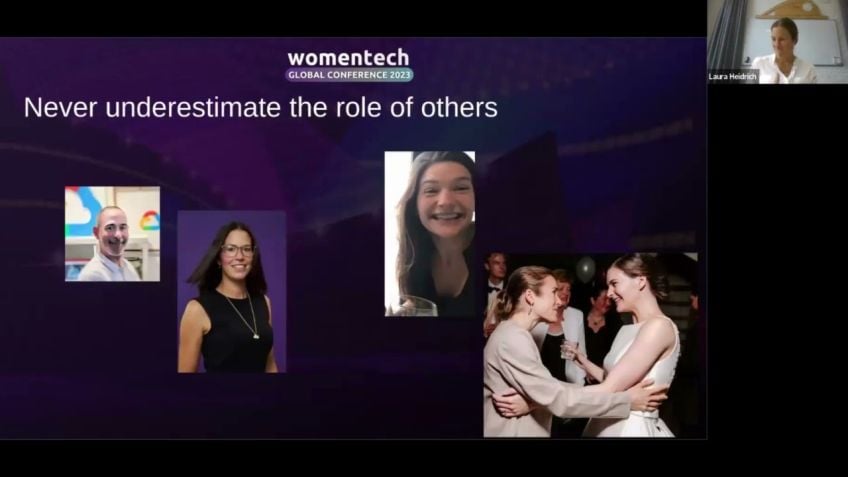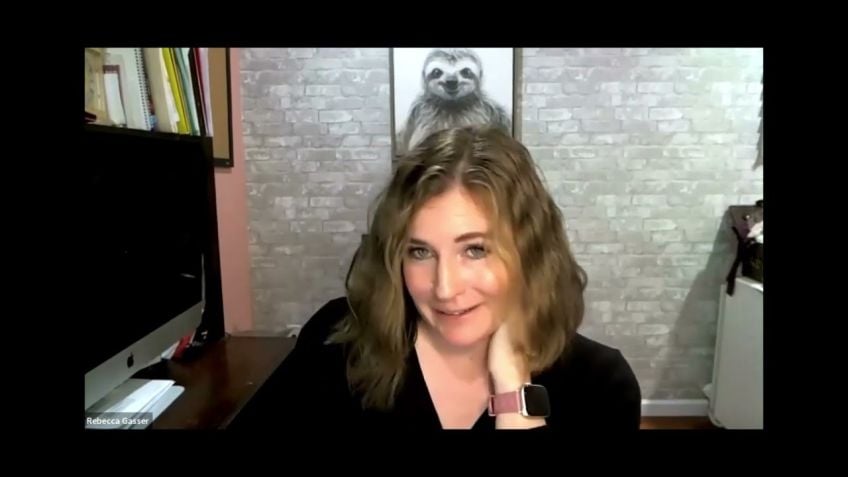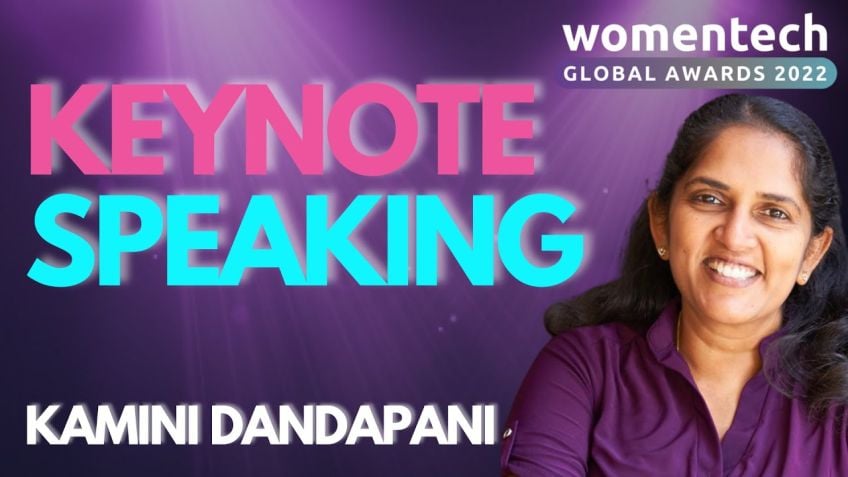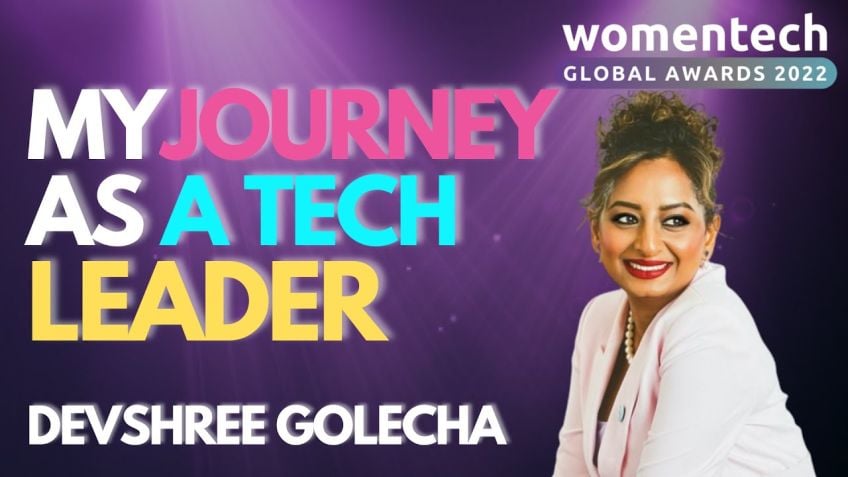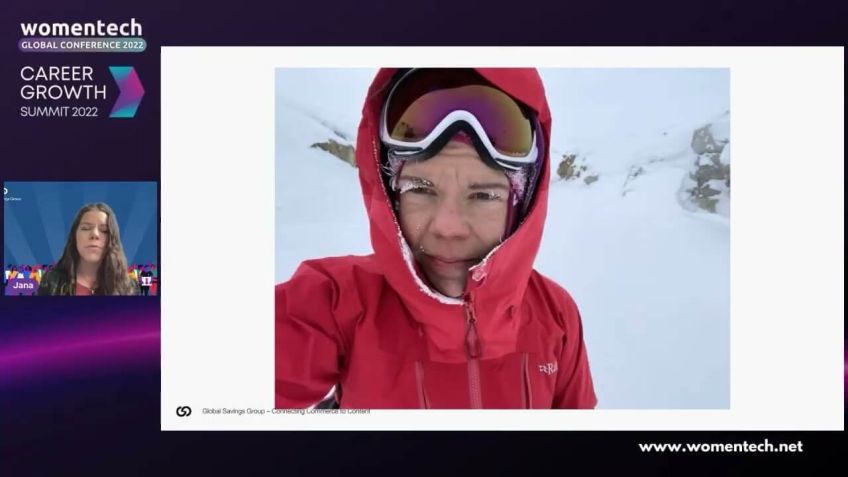Leadership Advice: 5 Steps to Follow for Lifelong Success by Anwen Robinson by Romana Sustar Anwen Robinson
Meet the woman propelling Business Forward: Know Anan
In the world of technology, it's not often that we get an opportunity to hear directly from those who are leading the industry. Today, as a former film marketing manager, it gives me immense pleasure to introduce our senior vice president and managing director, Anan, at Info. In this post, Anan shares her unique journey from being a girl drawn to arts from the South Wales Valley in the UK, to leading a global corporation today.
Growing up in the South Wales Valley
Even with her humble beginnings in the South Wales Valley and an inclination towards arts, Anan had the vision to see the importance of education in order to progress professionally. This vision is what drove her to leave school at 16 and engage in a job with the local council dealing with public services.
"Education quickly became far more meaningful to me."
Falling in love with Mechanical Engineering
It was her first job as a tracer in the architects department for the local council that ignited Anan's interest in mechanical engineering. "When am I, when is Pythagoras theorem ever going to be of use to me?" A question that many have asked during their math lessons became a driving force for Anan. Leading her to engage further with mechanical engineering, completing a course and successfully gaining a degree in the field.
Transitioning into teaching Computer Science and Maths
After gaining a post-grad certificate in education, Anan eventually started teaching math and this new subject, computer science, at a secondary school. The teaching experience allowed her to understand the applications and future of technology and data which later became crucial in her career.
Mental Well-Being: A lesson learnt from Personal Experience
Anan's passion for advocating for mental well-being stems from her own personal struggles. It was at a low point in her life, she discovered the importance of focusing on present and planning for the future. Creating a balance between pros and cons, focusing on things within control and drawing a line under things that have already passed was her mantra. This was the strategy she used to pull through a challenging time and rebuild her life.
The Glass Ceiling: Turning challenges into opportunities.
Anan came up against a glass ceiling when she was denied a deserved promotion based on gender bias. Instead of succumbing, she stood up for herself, realising the importance of self-worth. It led her to resign and seize new opportunities, advancing her career further.
Through her work with software companies and knowledge in data analytics, Anan was sought by global organizations like Cognos, Hyperion, and Unifor business software. In each role, she not only gained more professional skills but also learnt more about herself and how to handle the corporate world.
Leading at Info: Creating a Culture of Success
With over a decade at Info, Anan uses her experiences and knowledge to instill a culture of collaboration, aligning teams under a clear strategy. As a leader, her job is to ensure the success of everybody else.
Lessons from Anan:
- Be a lifelong learner and stay curious.
- Forget about the past and future, focus on now and what you can change.
- Control the voice in your head, learn from mistakes and dare to try new things.
- Be brave and know your worth. Don't settle for less.
- Build a strong network and learn from great mentors.
- Have clear strategies, know your destination and be humble and authentic.
Video Transcription
Even
I worked as a film marketing manager uh for info and I have huge pleasure to introduce you to. Anan. Anan is our senior vice president and you know, general marketing man, managing director at Info. And before we lose any more moments, Anwan, who are you, where do you come from? Tell us your story. Share your wisdom. Thank you
very much. OK, thanks Romana for the introduction. And uh um so thanks very much for giving me the opportunity to, to, to share a little bit of, of my journey. And um I, I wouldn't say it's been a conventional journey over the years. Uh I, I actually grew up in the South Wales Valley in the UK, in the South Wales Valley from a very working class background. And um I must admit that when I was in school, I was very much into the arts. Um I was very much somebody that needed to know, you know, why do I need to learn that, you know, explain to me why that's going to be important to me. And if I didn't get an, so then I, I tended to sort of switch off which consequently meant that um from an education point of view, I actually left school at 16. Um very much an arts background needed to, to, to get a job. I found a job in with the a council, a local council dealing with public services. And it was in the architects department of the heating and ventilating uh division of this particular council and I was on the board as a tracer. So basically taking the designs that somebody else had actually come up with and the calculations and, and transferring that onto the drawing board. Now, this is pre times I'll, I'll warn you, I'm very old. So my journey's quite long as well.
So pre pre sort of use of technology to actually capture these things drawing by hand as a tracer. And I, I quickly got to realize that actually, if I needed to get on because I started to understand exactly what the role was doing. I actually needed qualifications and I didn't have any so I could do the work but not get paid for it or get the recognition for the work I was doing. So all of a sudden education became far more meaningful for me. So, so I signed up for a day release uh to start off. Um I basically, I, I sort of scraped through maths when I was in school and I can actually remember the lesson where asking the question. When am I, when is Pythagoras theorem ever going to be of use to me. And uh and I was just told, just learn it, you know, just learn it by rote. And I, that certainly didn't, didn't apply to the way I learned things. But, but when I went back to, to sort of college, the only course that was relevant to the work that I was doing, which was in an engineering department on the drawing board was actually mechanical engineering. And um I can also remember the, the the teacher that I had then he was the type of person that will stay with me. You remember your best teacher? And if you ask the questions, why uh why do I need to know that? Give me an example.
He wouldn't just tell you why he would actually show you and give many examples and he just brought it alive. And to me that that's the way I knew that I would learn from going on. And I excelled when I was at college because it meant something to me. And I applied myself to this. And over the course of three years from a day release, I actually gained a qualification in engineering. And I can remember going to, to work when I, when I had the results and I was told actually it's equivalent to a levels. So during the lunch hour, I contacted the, the local university and actually said, well, I gained this qualification. I'm told it's equivalent to a levels. This was an ordinary national certificate in mechanical engineering. And um does that, you know, can I do something with this? So they interviewed me during my lunch hour. And by the time I went home to my parents that evening, I was actually signed up to, to go to university, they offered me a place on the spot and this was to, to study mechanical engineering. Um I opted for the five year course because I wanted to have uh time in industry. I didn't just want the theory. I wanted the practical aspects of this as well.
So I actually signed up to do uh uh an honors degree in mechanical engineering and it was myself and uh 70 lads on the course, which was wonderful. I had a wonderful five years in actually great, great time, which also involves sort of stints in industry where I worked um at the Royal Mint inland uh sort of in the welding department and scraping bearings for machines, but also learning about different processes, learn learning about the, you know, the actual practical application and also sort of involved with, with manufacturing as well.
So I successfully gained a degree in uh honors degree in engineering. And then so what, what am I now going to do with this? And I actually felt that I now had something to give back. And so I signed up for a post grad certificate in education and actually uh to become a lecturer. So the first job, uh that I actually uh uh entered into from an education perspective, however, was, was in a secondary school. Now, bear in your mind. I left school at 16 with no real qualifications at all. And the, the, the role that I had in secondary school was to teach maths. And, uh computer science, this new new subject was called computer science. And this was a sort of bird burgeoning time uh during that time in actual fire. And I, I spent sort of 8.5 years and uh finished off to sort of head of department for, for computer science. But this also do over that time, there were many things that happened in my life. Uh in fact, and one of them, this was probably a dark time and lot of less to be learn uh at, at this point, um I actually, my marriage had broken up. I had to move home. I then needed to earn more money so I could get a mortgage. Um So I changed jobs left behind all of my network, et cetera to start a new job. And I actually was at a very, very low period in my life.
All right. Now, Romana, you know, I'm a champion for uh people, well being and um mental well being in particular. And the reason why is because I've been there. All right. And I think I can empathize when you see people that are on the outside, very positive, but actually, you never know what's happening on the inside. So I think this is something that we should talk more about. But back to the story. Um, at that time, this was sort of sort of one of my first lessons in actual fact that I had, I was at a very low ebb and there were so many things that were wrong in my life and it became overwhelming and I realized in actual fact, the only way that I was going to sort this out was by having a plan.
So I sat down and I analyzed, ok, so what are the good things? What are the pros, what are the cons, what are the good things? What are the bad things? What are the things that are within my control? I can actually do something about. All right. What are the things that I'm worrying about that actually have already gone? You've made those mistakes? So draw a line, you know, be kind to yourself, draw a line, forget about that. An actual fact, the things that you're worrying about in the future haven't even happened yet.
So forget about them. Focus on the here and the now and that's how I sort of got my life back back together again, came up with a plan, understood exactly what I needed to do. And one of the things was I needed to leave teaching. Uh, I'd reached that point that I was, I was very, very unhappy in actual fact. So I went back to engineering and actually um left, left teaching and joined my first software company and this was a company. Um they were developing a new software product that was aimed at the consulting engineering marketplace. So they were looking for somebody with that background. Um somebody with a background in computing this new sort of topic that was there. And of course, I'd been head of department and somebody who could sell and it's like, well, anybody can sell, I'm sure anybody could sell. So I landed this particular job and this was my, my first sort of uh entry into the software, my software and I actually stayed there for 8.5 years. So we, I helped them develop the product, I helped them launch the product to the market. I made the very first sale of this product. And over that period of 8.5 years, um it actually became the leading uh solution for project costing billing for, for engineering companies in the UK. All right. So, so it was a huge success and that company grew.
Um And to the point that they were then looking for a sales and marketing director. So I actually put myself forward. So, uh are you keeping up with me at this point? And um so this is the point that I would probably say I hit my first glass ceiling. I know this is something that you were keen for me to talk about. And this is a strange one, especially for the ladies on the call because the managing director at that time was a female managing director. Now, I'm going back into sort of the uh late, late seventies now. And um, she actually stated to me, which would be illegal in these days that being a female managing director, even though I was the best person for the job, she needed to have a male sales director. And the assumption was that I wouldn't do anything about that. So this, you know, this was a company that was very close to where, where I actually lived. So they, you know, from a convenience fact, all of these things and she made the assumption that I wouldn't actually leave. And that again was where I stopped. And there's another lesson here is to value yourself. All right. And I knew that I was good enough for that particular job and I knew that this was a sort of a crossroads in my career that I needed to, to actually do something about it.
So I actually resigned and that actually opened up new opportunities for me. Um I went to work for a company called Cognos. Obviously, they've, they've now been been acquired, um spent some years there gaining an international experience uh from there, I went to, to work for a company called Hyperion. Again, these should be names that are familiar both of those organizations deal with data analytics.
So, you know, focusing on outcomes very, very important in today's age is to, you know, understand exactly the the insights that having access to core data provides for you. So it was a great grounding that I actually had there. And, and um I spent a few years there, gained a lot of international experience and then a company advertised that they were looking for somebody to uh this was around the time of the.com era. Um And this was a company based in Bristol called Aggressor Aggressor Limited. And this was a relatively small company at the time, it was only about 23 f uh um full time uh resources that were there turning over roughly about 2.5 million at that point in time. So I joined, joined as a salesperson and um over the years, right? So this is a company that grew um they were, they were in uh it was a Norwegian based company again, project costing and billing going back to, to my, my previous role. So I felt very, very comfortable um actually selling these solutions. And um they were actually acquired by uh AAA larger organization unifor business software. Now, this might be a name uh that you are familiar with. So unifor came in, acquired a aggressor limited and I was not part of a global organization headquartered in Netherlands, but a global organization.
And this is a company that grew through acquisition. So, so again, I was actually with this organization for 18.5 years, started off in a sales room, moved out to become sales manager when they acquired other organizations. I became the overall sales and marketing direct director over these organizations.
And then I got to a point where um the current managing director of the UK actually for, for personal reasons needed to step down. So, so he announced that he would be leaving in 12 months. And I was actually asked to put my hat in the ring to become the managing director. And it's not some something that I had sort of considered at the time, but again, when I evaluated it and um this might be something that a number of people are familiar with, especially especially the ladies on the call. Um Do you have a little voice in your head? Sometimes ladies and indeed gents, let's not be sexist about this that says, oh, I'm not sure. Am I good enough? Do I know enough? Um And you actually talk yourself out of doing something even before you've actually started it? All right, because that little little voice in your head. So again, over the years, I've learned to control that little voice in my head. All right to, to be. And the way I do it is by looking at the pros, looking at the cons learning from my experience of where I've come from doing that sort of analysis and then actually thinking what's the worst that could possibly happen?
All right, if, if you, you know a public speaking engagement, am I gonna, you know, fail for what? So what I've learned from that experience? All right. So the lesson there, um the imposter in syndrome, sometimes they talk about this, there are coping strategies to enable you to actually overcome that. And this is how I actually do that is by saying, do you know what I'm going to do it? If I fail, I'm going to be kind to myself and I will learn the lesson from that. And the next time I'll actually do it better, right? Because as we all know, you know, that the best innovations come come from failure, the best sort of, you know, successes, they just came before that success was realized the only lesson to be to be learned.
So
I went through um a very sort of comprehensive selection process involved external organization to do the assessment because they needed to be sure I was up for the job to go and you're telling me about my time. Yeah, brilliant. Thank you. This crack on anyway. So I, I became managing director. But what I actually made sure was that a um I had the support network, I've never done this beforehand, make sure I have the support network. Um I also because I didn't know what I didn't know I made sure I signed up for relevant courses. Um because it's quite scary when you realize the responsibilities of, uh, you know, when you take a form of directorship as well. So I made sure that I had the skills behind it, but this strong network and the next thing that I needed to do was to replace myself, it was the sales and marketing director. So I needed to build a team around me. All right. And I made sure that I wasn't replacing myself. I knew what my skills were, but I looked for our teams of complementary skill sets. All right, people who could do what I couldn't do. And that then drove the success of that organization even further, faster and further. All right. So after 18.5 years, um private equity came in, uh lots of changes took place. So I decided, OK, now is the time for me to leave. I then joined another global organization, Technology one based out of Australia, in fact, and that was to lead a turnaround.
So again, you build a culture, you understand all of the issues there, you talk to people, you communicate, you have a clear, clear strategy because if you haven't got a clear strategy, how can people get behind you in a line? All right. So that's absolutely another lesson there.
Make sure you have clarity and you communicate, communicate, communicate. So I turned the company that company around within sort of three years and that then brings me to where I am today at info. So I've been on with info now for just over uh just over 12 months in actual fact, and I'm hoping I'm bringing all of the lessons that I've learned previously to bear. But Roman, you're probably the person that should be able to answer that. You know, hopefully we're building a culture. We've got clarity of the strategy, we're collaborating, we're aligning. And I must admit my role in all of this now is to make sure that everybody else is successful. All right, the role of a leader, make sure, you know, I want to make myself obsolete. So the company drives forward uh together. So that's it. Hopefully, that was useful. Thank
you so much for being here. We were over 70. I will try to connect with you. I hope I got a few of your emails. But number one, stay curious, be a lifelong learner. Number two, forget the past, forget the future, focus on now and what you can change. Number three, control the voice in your head, learn from mistakes there to try new things. Number four, be brave. Know your worth. Don't settle for less. Number five, build a strong network, learn from great mentors and then bonus, she got to it, have a clear strategy and know your destination and the last one, stay humble, be authentic. So I'm learning from 11. I post beautiful things. On linkedin. Thank you so much for being here and enjoy your day. Bye. Thank you.

